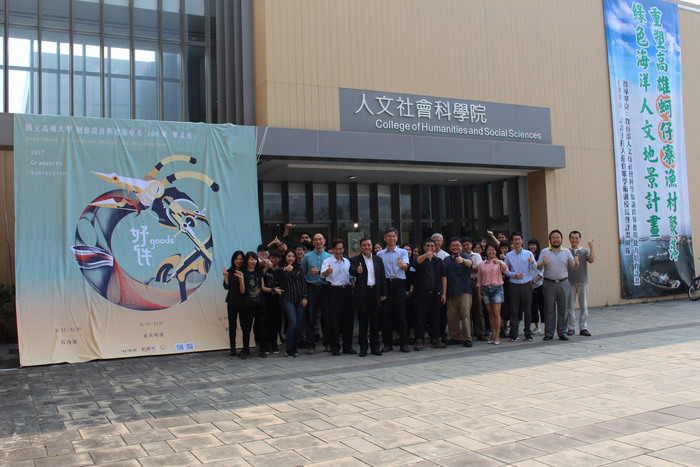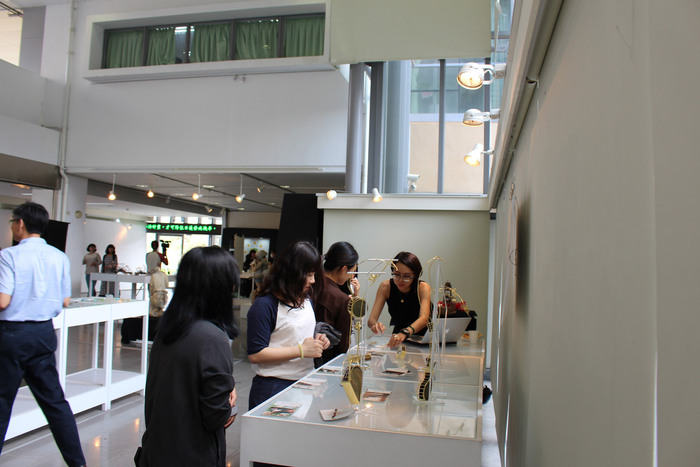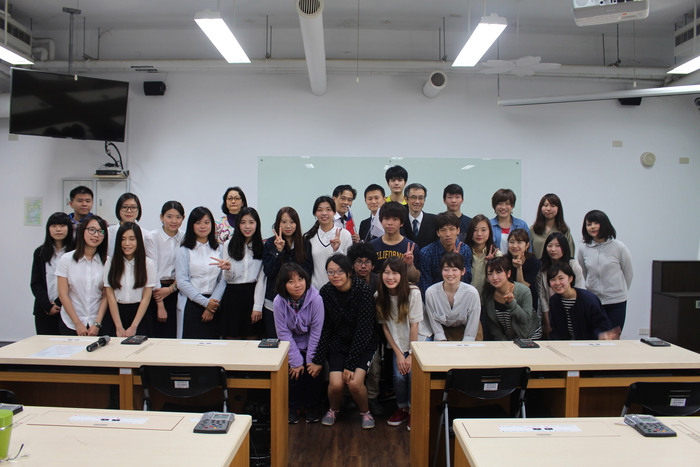COLLEGE OF HUMANITIES AND SOCIAL SCIENCES




Development Characteristics
In June 2002, the University started to organize the College of Humanities and Social Sciences, which was then formally set up in May 2004 with permission of the Ministry of Education. The College includes the Department of Western Languages and Literature, the Department of Kinesiology, Health and Leisure Studies, and the Department of Traditional Arts, which were established in 2000, 2001 and 2002 respectively. The Department of Western Languages and iterature is the first established department of this college. Its curriculum emphasizes both traditional courses of Literature and Linguistics and practical language training. The Department of Kinesiology, Health and Leisure Studies is the first of its kind to combine different fields of studies, including Health, Sports, Health Care, Leisure and Tourism. The Department of Traditional Arts, now renamed as The Department of Traditional Arts and Creative Design, focuses on traditional sculpture, aesthetic and multicultural arts, universal product design, and digital design. The Department of East Asian Language and Literature, established in 2008 with permission of the Ministry of Education, focuses on language training in combination with political, economic and social studies of East Asian countries, such as Japan, Korea, and Vietnam. This would be the first department of East Asia studies in southern Taiwan. In 2004 the Department of Kinesiology, Health and Leisure Studies started to offer an additional two-year occupational program. With permission of the Ministry of Education, the department’s graduate program is established in 2007. The Language Center was founded in August 2002 to provide language training for the public. The Centre signed a collaborative agreement with Educational Testing Service (ETS) to sponsor the administration of TOEIC and TOEFL-PBT in southern Taiwan.
Goals
College of Humanities and Social Sciences in National University of Kaohsiung is the only college equipped with collective identities of humanities and social science in southern Taiwan. With the objectives to provide additional departments with the leading academic and researching experiences related to humanities and social science, College of Humanities and Social Science aims at developing professionals with aesthetic, social consciousness and world views.
In response to this goal, College of Humanities and Social Sciences is devoted to integration of teaching resources in different departments:
| ► |
It is obligatory for students in College of Humanities and Social Sciences to take three courses, including “Central Problems in Philosophy”, “Globalization and Multi-culture” and “Technology and Society”, with total 6 credits in the Core General Curriculum to develop the fundamental concepts of humanities and social science.
|
| ► |
To raise employment competitiveness, students are trained to cultivate their second professional specialty. College of Humanities and Social Sciences offers cross-field curriculums, such as “Guider Training Program for Tourism Industry” and “Foreign Language Program for Medical Tourism”. Integrated curriculums with other colleges, such as “Humanities and Business Management Program”, are also promoted.
|
| In collaboration, the four departments in this college currently aim to offer education of professional language skills, multi-culture innovation, and healthy, happy lives. Features of each department are stated below. | |
| ■ |
The Department of Western Languages and Literature offers classes that enhance cultural and social understanding, such as History of Western Civilization, Introduction to Western Literature, Contemporary English and American Literature, English and American Children's Literature, English and American Novel, Feminism, and Sociolinguistics.
|
| ■ |
The Department of Kinesiology, Health and Leisure Studies combines a rich variety of classes that improve general mental and physical well-being with hotel management, warehouse management, hot spring rehabilitation management, spa, and sports injuries and treatment. Theories of humanistic spirit embedded in these social activities are studied. Courses include “Health Promotion, Theory and Practice”, “Security Education and First Aid”, “Introduction to Leisure and Recreation”, “Environmental Health and Protection”, “Athletic Science”, “Psychology of Sports and Exercises”, “Environmental Health”, “Traveling and Security”, “Construction of Healthy Community”, and “Economics”. The department also provides field training in governmental offices of health promotion, leisure farms, fitness centers, hospitals and research institutions.
|
| ■ |
The Department of Traditional Arts and Creative Design offers a range of rich art training courses, including Basic Carving, Basic Molding, History of Chinese Art, Auspicious Signs and Culture, Traditional Wood Carving, Figure Molding, Pattern Drafting, Metal in Tin, Field Work, Workshop Issue and Bamboo Carving.
|
| ■ |
The Department of East Asian Language and Literature includes programs of both language and sociology for Eas t As ia count r ies . In collaboration with other departments in NUK, the department aims to provide interdisciplinary training concerning language, society, and culture of major East Asia countries, such as Japan, Korea, China, and Vietnam. They are based on the language training with the research of international relationships from the perspective of Taiwan. The course design follows the contents of eastern Asia languages, social science theory, practices, and application, literatures, Japanese conversation and translation, Korean conversation and translation, the third language training, and international student exchange program.
|
Future Outlook
In order to cultivate students with a sound and cosmopolitan education, the College will continue to seek progress in the following three dimensions: first, to balance the need of local development and globalization; second, to improve art and cultural education in South Taiwan; third, to enhance collaboration among colleges within NUK. In terms of curriculum, the college will continue to encourage collaboration between different disciplines within NUK. The goal is to further develop interdisciplinary programs involving this college, for example, Architecture and Art program, WTO program, and Foreign Language Translation Program. In line with the University’s development plan, the Master Program of Western Languages and Literature, the Master Program of Traditional Arts and Creative Design, and the Doctor Program of Kinesiology, Health and Leisure Studies will also be established in the near future. To build up a research platform and, the College of Humanities and Social Sciences is planning to establish a Researching Center of Humanities and Technology, which may help encourage cooperation among professors of different fields and promote the overall academic development and teaching efficiency. Additionally, the College of Humanities and Social Sciences cooperates with universities abroad and promotes exchange student programs in order to broaden students’ world views and to increase multiple learning opportunities.
|






